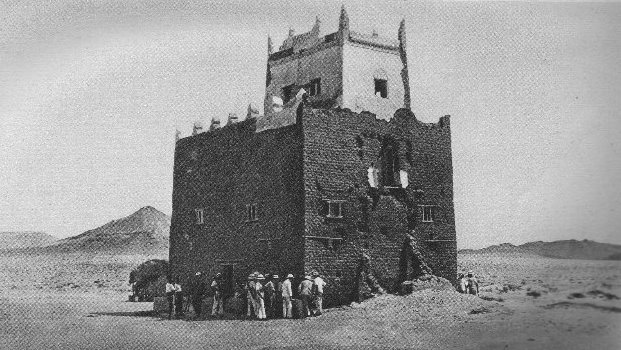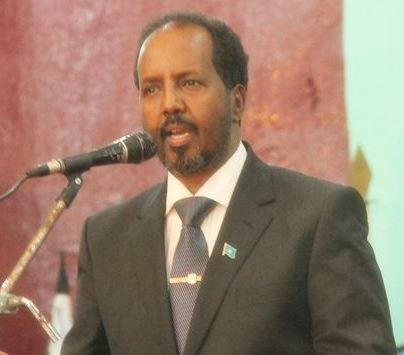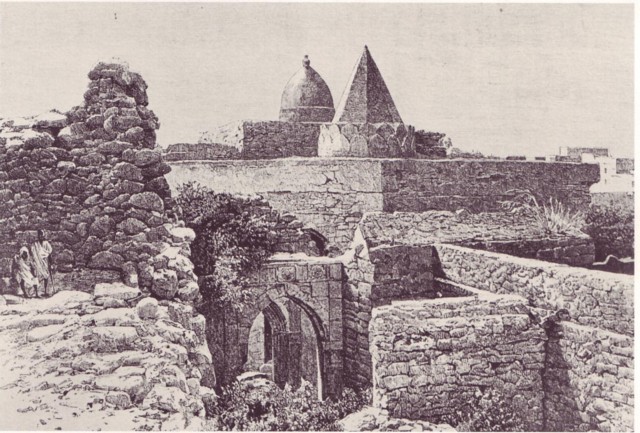|
Asha Gelle Dirie
Asha Gelle Dirie ( so, Caasha Geelle Diriye, ar, آشا جيلي ديري) is a Somali politician and civil society activist. From 2005 to 2012, she served as the Minister of Women Development and Family Affairs of the autonomous Puntland regional state in northeastern Somalia. Dirie is also the founder and Executive Director of The Asha Gelle Foundation (TAG Foundation). Additionally, she served as the Chairperson of the federal Constitutional Review and Implementation Commission between 2014 and 2015. Personal life Dirie was born in 1966 in Galkayo, the capital of the north-central Mudug region of Somalia. She hails from the Maxamuud Saleebaan sub-clan of the Majeerteen Harti Darod. For her post-secondary education, Dirie earned a degree from the Somali National University's Lafoole College of Education in Mogadishu. Career Early career Upon graduation, Dirie initially served as a teacher in the national capital. From 1984 to 1988, she worked for Somali Women Education. She ... [...More Info...] [...Related Items...] OR: [Wikipedia] [Google] [Baidu] |
Galkayo
Galkayo ( so, Gaalkacyo, ar, جالكعيو Dr Badal Kariye Ba Bsit Ma Mba & Phd, ''The Kaleidoscopic Lover: The Civil War in the Horn of Africa & My Itinerary for a Peaceful Lover'', (AuthorHouse: 2010), p.116.) which in Af-Somali translates to Gaal get out or get up is the capital of the north-central Mudug region of Somalia. The city of Galkacyo is divided into two administrative areas separated by a loose boundary. Geographically Galkacyo is divided into four main quarters: Garsoor, Horumar, Israac and Wadajir and horumar . Puntland controls Garsoor and Israac, while Galmudug controls Wadajir in South Following independence, Galkacyo was made the center of the Galkayo District. The city has grown considerably in recent times and serves as a commercial hub. Population estimates range from 80,000 to 315,000. History Before independence Gaalkacyo was small town mainly inhibited by pastrolists, following the independence of Somalia in 1960, Galkayo was made the center of G ... [...More Info...] [...Related Items...] OR: [Wikipedia] [Google] [Baidu] |
Kismayo
Kismayo ( so, Kismaayo, Maay: ''Kismanyy'', ar, كيسمايو, ; it, Chisimaio) is a port city in the southern Lower Juba (Jubbada Hoose) province of Somalia. It is the commercial capital of the autonomous Jubaland region. The city is situated southwest of Mogadishu, near the mouth of the Jubba River, where the waters empty into the Indian Ocean. According to the United Nations Development Programme, the city of Kismayo had a population of around 89,333 in 2005. During the Middle Ages, Kismayo and its surrounding area was part of the Ajuran Empire that governed much of southern Somalia and eastern Ethiopia, with its domain extending from Hobyo in the north, to Qelafo in the west, to Kismayo in the south.Lee V. Cassanelli, ''The shaping of Somali society: reconstructing the history of a pastoral people, 1600–1900'', (University of Pennsylvania Press: 1982), p.102. In the early modern period, Kismayo was ruled by the Geledi Sultanate and by the later 1800s, the Boqow d ... [...More Info...] [...Related Items...] OR: [Wikipedia] [Google] [Baidu] |
Puntland Politicians
Puntland ( so, Puntland, ar, أرض البنط, it, Terra di Punt or ''Paese di Punt''), officially the Puntland State of Somalia ( so, Dowlad Goboleedka Puntland ee Soomaaliya, ar, ولاية أرض البنط الصومالية), is a Federal Member State in northeastern Somalia. The capital city is the city of Garoowe in the Nugal region, and its leaders declared the territory an autonomous state in 1998. Geographically to the west, Puntland lays claim to the intra-46th meridian territories that were outside European colonial rule during parts of the Scramble for Africa period. Puntland is bordered by Somaliland to its west, the Gulf of Aden in the north, the Guardafui Channel in the northeast, the Indian Ocean in the southeast, the central Galmudug region in the south, and Ethiopia in the southwest. There are several major geographical apexes in Puntland, including the Cape Guardafui, which forms the tip of the Horn of Africa, Ras Hafun the easternmost place on t ... [...More Info...] [...Related Items...] OR: [Wikipedia] [Google] [Baidu] |
People From Galkayo
A person ( : people) is a being that has certain capacities or attributes such as reason, morality, consciousness or self-consciousness, and being a part of a culturally established form of social relations such as kinship, ownership of property, or legal responsibility. The defining features of personhood and, consequently, what makes a person count as a person, differ widely among cultures and contexts. In addition to the question of personhood, of what makes a being count as a person to begin with, there are further questions about personal identity and self: both about what makes any particular person that particular person instead of another, and about what makes a person at one time the same person as they were or will be at another time despite any intervening changes. The plural form "people" is often used to refer to an entire nation or ethnic group (as in "a people"), and this was the original meaning of the word; it subsequently acquired its use as a plural form of ... [...More Info...] [...Related Items...] OR: [Wikipedia] [Google] [Baidu] |
Ethnic Somali People
An ethnic group or an ethnicity is a grouping of people who identify with each other on the basis of shared attributes that distinguish them from other groups. Those attributes can include common sets of traditions, ancestry, language, history, society, culture, nation, religion, or social treatment within their residing area. The term ethnicity is often times used interchangeably with the term nation, particularly in cases of ethnic nationalism, and is separate from the related concept of races. Ethnicity may be construed as an inherited or as a societally imposed construct. Ethnic membership tends to be defined by a shared cultural heritage, ancestry, origin myth, history, homeland, language, or dialect, symbolic systems such as religion, mythology and ritual, cuisine, dressing style, art, or physical appearance. Ethnic groups may share a narrow or broad spectrum of genetic ancestry, depending on group identification, with many groups having mixed genetic ancestry. E ... [...More Info...] [...Related Items...] OR: [Wikipedia] [Google] [Baidu] |
Living People
Related categories * :Year of birth missing (living people) / :Year of birth unknown * :Date of birth missing (living people) / :Date of birth unknown * :Place of birth missing (living people) / :Place of birth unknown * :Year of death missing / :Year of death unknown * :Date of death missing / :Date of death unknown * :Place of death missing / :Place of death unknown * :Missing middle or first names See also * :Dead people * :Template:L, which generates this category or death years, and birth year and sort keys. : {{DEFAULTSORT:Living people 21st-century people People by status ... [...More Info...] [...Related Items...] OR: [Wikipedia] [Google] [Baidu] |
1966 Births
Events January * January 1 – In a coup, Colonel Jean-Bédel Bokassa takes over as military ruler of the Central African Republic, ousting President David Dacko. * January 3 – 1966 Upper Voltan coup d'état: President Maurice Yaméogo is deposed by a military coup in the Republic of Upper Volta (modern-day Burkina Faso). * January 10 ** Pakistani–Indian peace negotiations end successfully with the signing of the Tashkent Declaration, a day before the sudden death of Indian prime minister Lal Bahadur Shastri. ** The House of Representatives of the US state of Georgia refuses to allow African-American representative Julian Bond to take his seat, because of his anti-war stance. ** A Commonwealth Prime Ministers' Conference convenes in Lagos, Nigeria, primarily to discuss Rhodesia. * January 12 – United States President Lyndon Johnson states that the United States should stay in South Vietnam until Communist aggression there is ended. * January 15 – 1966 N ... [...More Info...] [...Related Items...] OR: [Wikipedia] [Google] [Baidu] |
Hassan Sheikh Mohamud
Hassan Sheikh Mohamud ( so, Xasan Sheekh Maxamuud, ar, حسن شيخ محمود; born 29 November 1955) is a Somali politician who has served as the president of Somalia since May 2022. He is the founder and current chairman of the Union for Peace and Development Party. He was elected as President of the Federal Republic of Somalia on 15 May 2022, defeating the incumbent president Mohamed Abdullahi Mohamed. He previously served in the same position as the 8th president of Somalia from 2012 to 2017. A civil and political rights activist, Hassan was previously a university professor and dean at SIMAD University, which he co-founded. In April 2013, Hassan was named in the ''Time'' 100, '' Time'' magazine's annual list of the 100 most influential people in the world. His efforts at advancing national reconciliation, anti-corruption measures, and socio-economic and security sector reforms in Somalia were cited as reasons for the selection. He was born in Jalalaqsi, an agricul ... [...More Info...] [...Related Items...] OR: [Wikipedia] [Google] [Baidu] |
Federal Parliament Of Somalia
The Federal Parliament of Somalia ( so, Golaha Shacabka Soomaaliya; often ''Baarlamaanka Federaalka Soomaaliya''; ar, البرلمان الاتحادي في الصومال) is the national parliament of Somalia. Formed in August 2012, it is based in the capital Mogadishu and is bicameral, consisting of an Upper House (Senate) and a Lower House (House of the People). Parliamentary history The first parliament in independent Somalia was unicameral National Assembly (1960–1969). It was followed by unicameral House of the People (1969–2012) which did not function during Somali Civil War. Unicameral Federal Parliament was established in 2012, and it was reformulated as bicameral in 2016, when Senate of Somalia was established. Establishment of Federal Parliament Post-transition Roadmap As part of the official "Roadmap for the End of Transition", a political process devised by former Prime Minister Abdiweli Mohamed Ali Gaas which provides clear benchmarks leading toward the ... [...More Info...] [...Related Items...] OR: [Wikipedia] [Google] [Baidu] |
Abdiweli Mohamed Ali
Abdiweli Mohamed Ali GaasBriefing to the Security Council - website of the United Nations Assistance Mission in Somalia (UNSOM) ( so, Cabdiweli Maxamed Cali ; ar, عبدالولي محمد علي; ), also more known as Abdiweli Gaas, is a Somali American economist and politician. He served as the of from June 2011 to October 2012, and briefly afte ... [...More Info...] [...Related Items...] OR: [Wikipedia] [Google] [Baidu] |
Constitution Of Somalia
The Provisional Constitution of the Federal Republic of Somalia ( so, Dastuurka Jamhuuriyadda Federaalka Soomaaliya) is the supreme law of Somalia. It provides the legal foundation for the existence of the Federal Republic and source of legal authority. It sets out the rights and duties of its citizens, and defines the structure of government. The Provisional Constitution was adopted on August 1, 2012 by a National Constitutional Assembly in Mogadishu, Banaadir. Somalia's provisional Constitution provides for a parliamentary system of government, with the President of Somalia as head of state and an appointed Prime Minister as head of government. The country has a bicameral legislature, which consists of the Senate (upper house) and the House of the People (lower house). Together, they make up the Federal Parliament of Somalia. Previous constitutions On June 20, 1961, and through a popular referendum, the people of Somalia ratified a new Constitution, which was first drafted in ... [...More Info...] [...Related Items...] OR: [Wikipedia] [Google] [Baidu] |
Mogadishu
Mogadishu (, also ; so, Muqdisho or ; ar, مقديشو ; it, Mogadiscio ), locally known as Xamar or Hamar, is the capital and most populous city of Somalia. The city has served as an important port connecting traders across the Indian Ocean for millennia, and has an estimated population of 2,388,000 (2021). Mogadishu is located in the coastal Banadir region on the Indian Ocean, which unlike other Somali regions, is considered a municipality rather than a (federal state). Mogadishu has a long history, which ranges from the ancient period up until the present, serving as the capital of the Sultanate of Mogadishu in the 9th-13th century, which for many centuries controlled the Indian Ocean gold trade, and eventually came under the Ajuran Empire in the 13th century which was an important player in the medieval Silk Road maritime trade. Mogadishu enjoyed the height of its prosperity during the 14th and 15th centuries and was during the early modern period considered the ... [...More Info...] [...Related Items...] OR: [Wikipedia] [Google] [Baidu] |



_1938.jpg)

.jpg)
